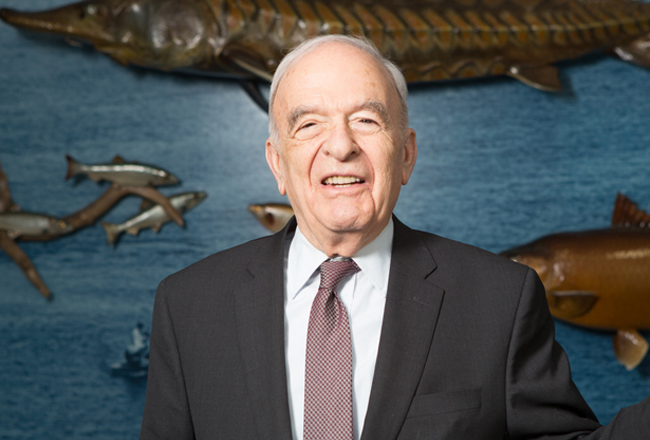Richard Ottinger receives environmental award from American Bar Association
Richard Ottinger, Pace University”™s Elisabeth Haub School of Law dean emeritus, was recently recognized for his leadership in environmental policy by the American Bar

Association. Ottinger received the organization”™s 2017 Award for Distinguished Achievement in Environmental Law and Policy on Aug. 13.
“I needn”™t tell you that this is an unprecedented time of challenge to the environment, indeed the sustainability of our nation and the world,”™”™ Ottinger said in his acceptance speech. “Our contributions to utilize the law to overcome the deliberate destruction of all environmental treaties, laws and regulations is needed as never before.”
Ottinger served as dean of Pace”™s Law School from 1994 through 1999 and in the U.S. House of Representatives from 1965 to 1985. He is credited with crafting the 1974 Public Utilities Regulatory Policy Act, which in part encouraged the development of hydroelectric power and the conservation of electric energy and natural gas.
His other work included preventing Storm King Mountain from being transformed into a generating facility and blocking the construction of an eight-lane highway along the Hudson River from New York City to Putnam County.
At Pace, Ottinger created the Energy and Environment Center, which promotes energy efficiency and renewable energy. He has also been involved in the writing, editing and co-authoring of more than 100 works on energy and the environment.
“Most of these activities Dick has undertaken as a volunteer, above and beyond his formal positions as legislator or professor or dean,” said professor of environmental law, Nicholas Robinson, who nominated Ottinger for the award. “Upon leaving the deanship, he was appointed as the sui generis dean emeritus here, and while he may be ”˜retired”™ from a paying job, he has never retired from his efforts to build environmental law, reform energy law and protect the environment.”